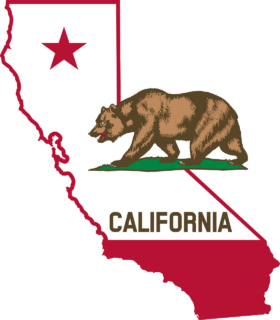Seyfarth Synopsis: A recent case out of the Court of Appeals in Houston, Texas highlights the challenges in proving liability against a third-party competitor for knowing participation in breach of duty of loyalty/fiduciary duty, tortious interference with contract, and conspiracy when the third-party competitor participates in the solicitation of current employees. The Court’s opinion emphasizes that although an employee owes a duty of loyalty to her current employer, current employees can generally plan to compete—and communicate among themselves to do so—while still employed. The decision further illustrates the difficulty in proving a third-party competitor participated in any unlawful plans to compete, without some evidence showing the competitor had knowledge of the departing employees’ restrictive covenants and directing the wrongful acts. As such, the opinion demonstrates the importance of enforceable non-compete, non-solicit, and confidentiality agreements with key employees.
 One of the worst case scenarios for a company is an entire team—including high level executives—jumping ship to a competitor, and directly competing against the former employer in the same space and market. A recent decision from the First Circuit Court of Appeals in Houston, Texas provides an interesting look into just such a situation, and it reinforces that it is difficult for a company to recoup its damages after a max exodus of employees if it hasn’t taken the necessary precautions ahead of time.
One of the worst case scenarios for a company is an entire team—including high level executives—jumping ship to a competitor, and directly competing against the former employer in the same space and market. A recent decision from the First Circuit Court of Appeals in Houston, Texas provides an interesting look into just such a situation, and it reinforces that it is difficult for a company to recoup its damages after a max exodus of employees if it hasn’t taken the necessary precautions ahead of time.
Continue Reading A Herculean Task: Proving a Competitor’s Knowledge and Participation in an Unfair Competition Case
 In Seyfarth’s first installment in its 2020 Trade Secrets Webinar Series, Seyfarth attorneys Robert Milligan, Jesse Coleman, and Joshua Salinas reviewed the noteworthy legislation, cases, and other legal developments from across the nation over the last year in the area of trade secrets and data theft, non-competes and other restrictive covenants, and computer fraud—plus, predictions for what to watch for
In Seyfarth’s first installment in its 2020 Trade Secrets Webinar Series, Seyfarth attorneys Robert Milligan, Jesse Coleman, and Joshua Salinas reviewed the noteworthy legislation, cases, and other legal developments from across the nation over the last year in the area of trade secrets and data theft, non-competes and other restrictive covenants, and computer fraud—plus, predictions for what to watch for On January 23, 2020, the Texas Fifth District Court of Appeals in Dallas retracted its previous ruling in the trade secrets dispute Goldberg, et al. v. EMR (USA Holdings) Inc., et al. and issued a new opinion upon rehearing. In doing so, the Court reversed course on its previous ruling that communications with customers and suppliers involved a matter of public concern and were an exercise of free speech.
On January 23, 2020, the Texas Fifth District Court of Appeals in Dallas retracted its previous ruling in the trade secrets dispute Goldberg, et al. v. EMR (USA Holdings) Inc., et al. and issued a new opinion upon rehearing. In doing so, the Court reversed course on its previous ruling that communications with customers and suppliers involved a matter of public concern and were an exercise of free speech. Last week, the Ninth Circuit finally
Last week, the Ninth Circuit finally  A Ninth Circuit panel consisting of Judges A. Wallace Tashima, Johnnie B. Rawlinson, and Paul J. Watford recently heard oral argument in Anheuser-Busch Companies v. Clark, 17-15591, concerning the denial of a former employee’s anti-SLAPP motion in a trade secret misappropriation and breach of contract case. This is the second time the case has made its way up to the Ninth Circuit. We previously
A Ninth Circuit panel consisting of Judges A. Wallace Tashima, Johnnie B. Rawlinson, and Paul J. Watford recently heard oral argument in Anheuser-Busch Companies v. Clark, 17-15591, concerning the denial of a former employee’s anti-SLAPP motion in a trade secret misappropriation and breach of contract case. This is the second time the case has made its way up to the Ninth Circuit. We previously  A recent California Court of Appeal decision held that the receipt, retention and dissemination of confidential information by a whistleblower’s attorney is protected by the state’s anti-SLAPP statute. MMM Holdings, Inc. v. Reich, 21 Cal. App. 5th 167 (2018).
A recent California Court of Appeal decision held that the receipt, retention and dissemination of confidential information by a whistleblower’s attorney is protected by the state’s anti-SLAPP statute. MMM Holdings, Inc. v. Reich, 21 Cal. App. 5th 167 (2018). A California federal district court has recently given employers a small victory against former employees who misappropriate trade secrets and assert whistleblower immunity or the litigation privilege as after-the-fact defenses. The federal district court for the Eastern District of California recently
A California federal district court has recently given employers a small victory against former employees who misappropriate trade secrets and assert whistleblower immunity or the litigation privilege as after-the-fact defenses. The federal district court for the Eastern District of California recently